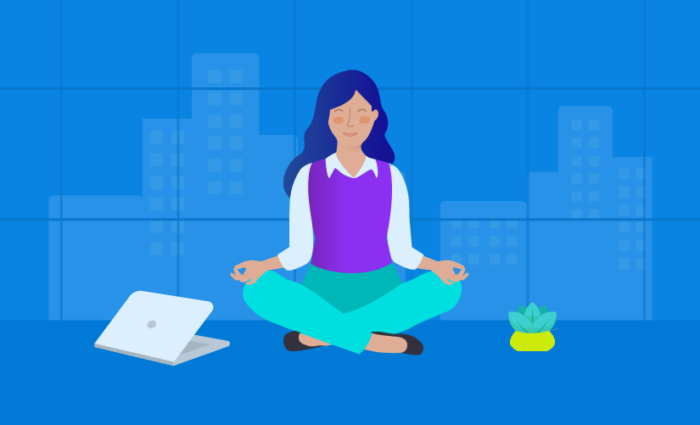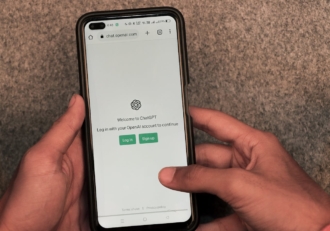How well do you work?
Are you focused and consistently delivering top-quality work or are you often distracted and not producing at the level you’d like to be?
With social media, Slack messages, email, and an ever-present smartphone, distractions are becoming more prevalent.
A 2017 study showed that the average smartphone user checks their phone 80 times a day.
If you get eight hours of sleep a night, that means you’re checking your phone five times an hour. That’s roughly every 12 minutes.
Our default state is distracted.
Here’s the problem: If you want to produce anything of value, you need to be able to put your head down and concentrate for long stretches of uninterrupted time.
According to Cal Newport in his New York Times Bestselling book, Deep Work: Rules for Focused Success in a Distracted World, deep work is defined as “professional activities performed in a state of distraction-free concentration that push your cognitive capabilities to their limit. These efforts create new value, improve your skill, and are hard to replicate.”
In short, deep work allows you to enter a flow state where you can produce at the highest level with minimal distractions. It’s the sort of work where you lose track of time.
According to Newport, there are two things you need if you want to thrive in your career:
1. The ability to quickly master hard things.
2. The ability to produce at an elite level, in terms of both quality and speed.
Deep work is an increasingly valuable skill for the modern knowledge worker and one that’s quickly becoming lost.
If you are currently checking your phone every 12 minutes, “rewiring” your brain to focus and perform at a high level for extended periods is going to be difficult. You aren’t going to be able to wake up one morning, minimize distractions, and focus for four hours.
But you have to start somewhere. Here are some strategies and tips to help you begin to eliminate distractions and get the most out of the time you have carved out to concentrate.
Disable social media notifications on your smartphone
Social media is designed to be addicting. Companies want to keep delivering small dopamine hits to keep you on their sites longer.
One way to carve out time for deep work is to restrict your social media access to a specific period each day and disable all notifications for the rest of the day.
This seems easier said than done. There’s a whole swath of productivity apps, including Rescuetime and Freedom, that you can use to keep you focused. The premise is simple: Add your focus hours and the names of the sites or apps that you want to restrict on your computer or phone. The app will block those sites during those hours.
Start a daily meditation practice
No one can work all day without breaks. Meditating during your break can be useful.
Newport said, “The goal of productive meditation is to take a period in which you’re occupied physically but not mentally…and focus your attention on a single well-defined professional problem.”
We can use productive meditation to help us think more deeply about an idea or task. But to succeed at this, you must minimize distractions.
Ritualize your work during office hours
It takes anywhere from 30 to 60 days to create a new habit. However, rituals can help you create a habit that sticks. Building in a routine for how you start your workday or begin a specific task can help you get into a deep work state.
For example, imagine clocking into work at your desk and following the same ritual every day. It becomes second nature. Your routine may be as simple as getting a cup of coffee from the break room before you start your day and then jumping right into your work.
Rituals allow you to take action as opposed to having to draw on willpower or motivation.
As Mark Manson said, “Action is not just the effect of motivation; it is also the cause of it.”
Doing the same activity every day may seem tedious and tiresome, but it will increase your creativity and productivity.
Batch all of your repetitive tasks
If you work on a computer all day, you may find yourself doing shallow or repetitive work. You often do these non-cognitive tasks while you are distracted. For example, it could be scheduling meetings, replying to emails, pulling data for reports, booking work travel, filing expense reports, etc.
One way to get more done is to batch these administrative tasks into certain time blocks. So instead of checking and replying to emails as soon as they come in, set aside 30 minutes three times a day to read and respond to all messages.
Prioritize the most critical work
At the beginning of your day, figure out the most important thing you need to accomplish. Then do that first thing in the morning while you have the most energy. Addressing the most critical task allows you to begin your day with a deep work mind-set. It will carry over into the rest of your day.
Take regular short breaks
Most people schedule breaks from distraction so they can focus. However, the opposite is more effective. It would help if you planned regular breaks from focus to allow for distractions. For example, these breaks can be a great time to meditate or catch up on social media or your favorite news websites.
Employ time-blocking
We knowledge workers often complain that we don’t have enough time in the day to complete all of our tasks. In actuality, we do. We’re just terrible at planning our time.
This is where time-blocking can help. Add every task that you need to get done to your calendar. Scheduling your tasks and activities for work will allow you to use your time more wisely. Not everything goes as planned, right? So if you are interrupted by an impromptu meeting or even a change in task, revise your schedule. The key is that you are deliberate in planning your day.
…
Not everything above will work for you; some ideas will work better than others. Deep work is a great way to home in on your creativity and produce valuable work, whether at work or home, on a more consistent basis.













Send Comment:
1 Comments:
More than a year ago
Great article! Thanks a bunch!